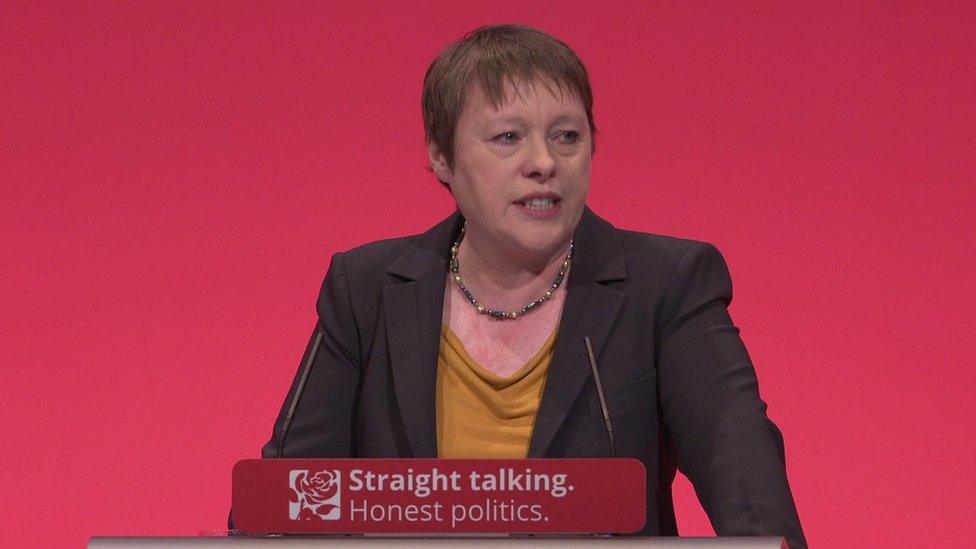Jeremy Corbyn shifts the nuclear debate
- Published
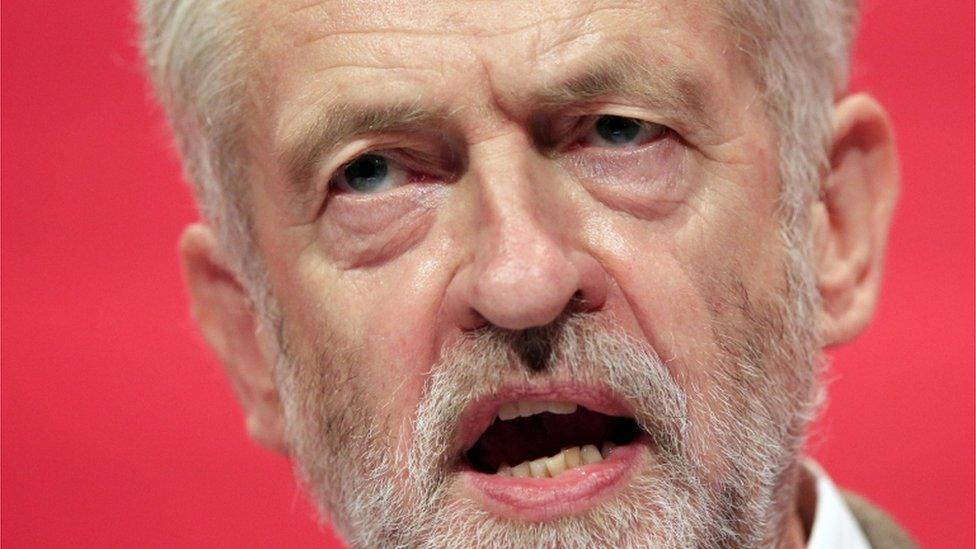
Jeremy Corbyn may just have ensured that there would be no nuclear deterrent if he were prime minister.
It did not take a debate, within Labour or the House of Commons. A few words on the Today programme did the trick.
Should he get to Number 10, he said simply, he would not press the nuclear button.
Think of it this way: Corbyn declared to Britain's potential enemies that with him in charge they could disregard a multi-billion pound weapon system.
Or, perhaps, put it like this: a man with a lifetime commitment to scrapping Britain's deterrent promised not to kill untold thousands of innocent people if he had the opportunity.
Many politicians choose not to be so frank.
They talk - as David Cameron does - of an insurance policy. They are rarely asked to contemplate what would happen if they were forced to cash it in.
'I want grandchildren'
The peer and historian Peter Hennessy has put the question to prime ministers.
In 1988 former Labour PM Jim Callaghan told him: "If we had got to that point where I felt it was necessary to do it, then I would have done it."
Although he added: "And if I had lived after having pressed that button, I could never, never have forgiven myself."
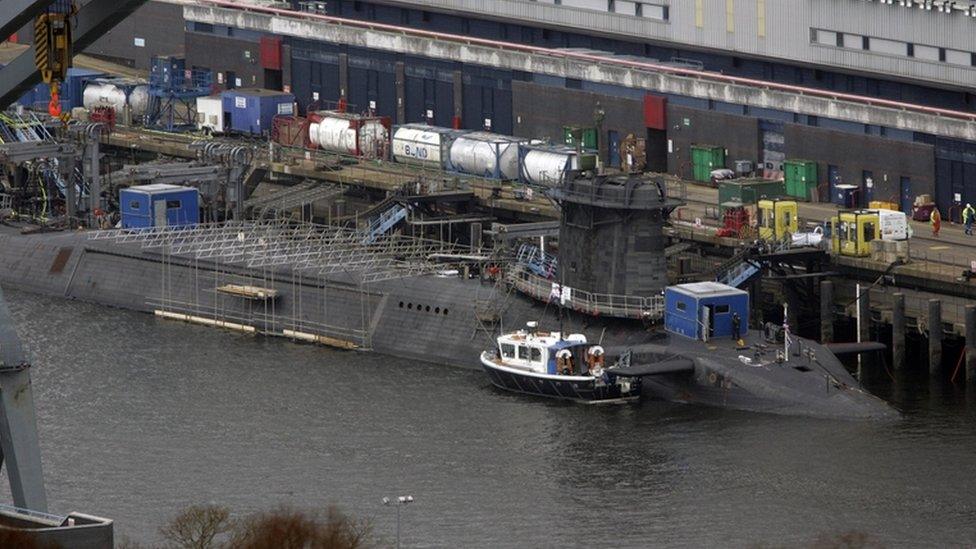
A decision on whether to renew Trident, based at Faslane naval base, is due in 2016
In his book the Secret State, Hennessy says Margaret Thatcher told an aide early in her premiership that she was not at all sure she could have pressed the button.
She is reported to have said: "I want grandchildren too…"
For prime ministers past, the question was far from academic.
In Mr Corbyn's youth, nuclear attack was a present threat, external and the debate about the bomb shaped the politics of the left.
Many years have passed since Britons were warned to prepare for a nuclear attack, external with stout shoes, whitewash and warm overcoats.
Back on the agenda
Global diplomacy no longer focuses so keenly on an east-west debate about disarmament, external; nuclear holocaust is no more a go-to trope for the makers of disaster movies., external
But the weapons remain, so too potential enemies. The prime minister has argued Britain must consider new threats from North Korea and Iran.
Opposition to Trident was a potent part of the SNP's offering; the future of the Clyde Naval Base in Faslane central to debates about Scottish independence.
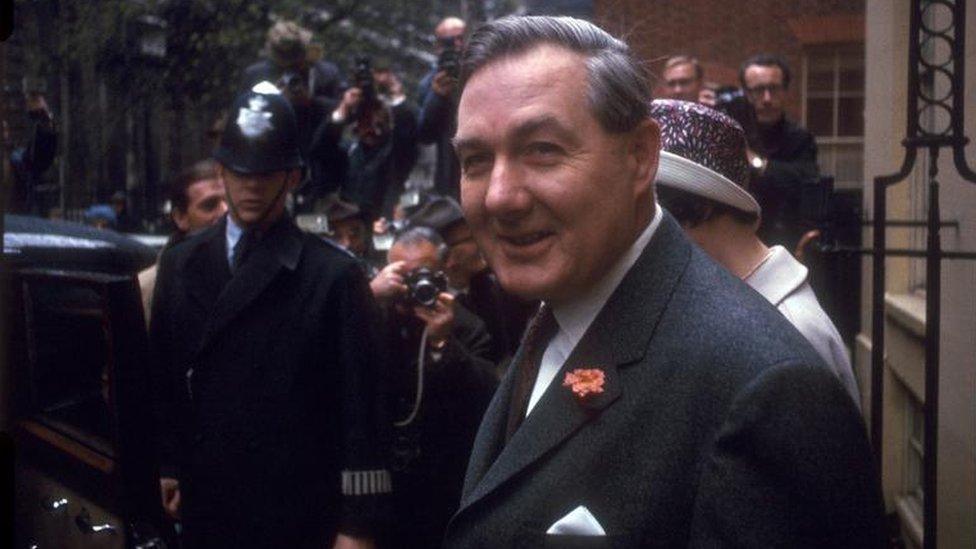
Former Labour PM James Callaghan said he would have used nuclear weapons if necessary - but would not have forgiven himself
The decision on replacing Trident meant questions about the bomb would return.
The issue now threatens to define a split between Mr Corbyn and his fellow front benchers, but it is far more than a handy symbol of the political gap between him and his more centrist colleagues.
Britain now has an opposition leader - a would-be prime minister - who wants not only to disarm, but explicitly vows never to fire a nuclear weapon.
In making his view so clear Labour's new leader may already have changed the politics of the nuclear debate.
- Published30 September 2015
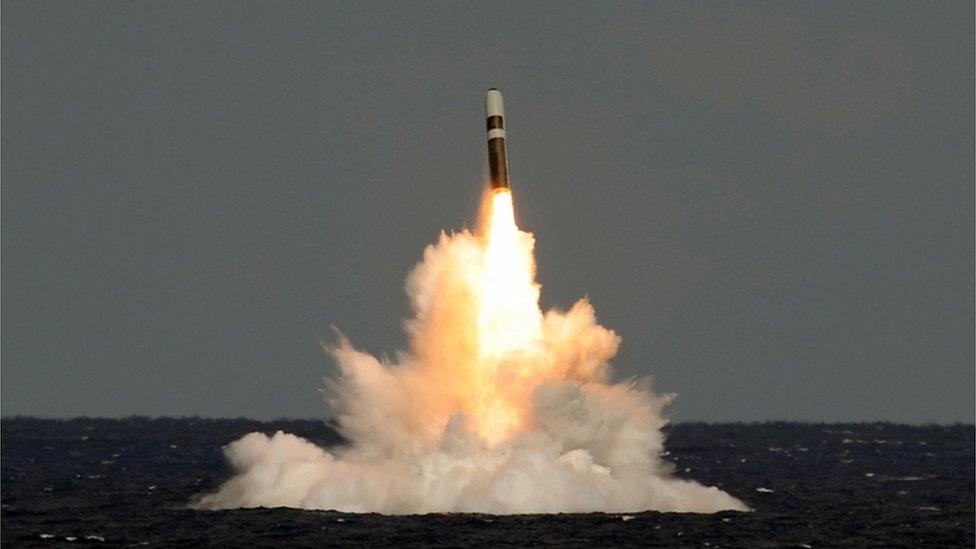
- Published23 May 2017
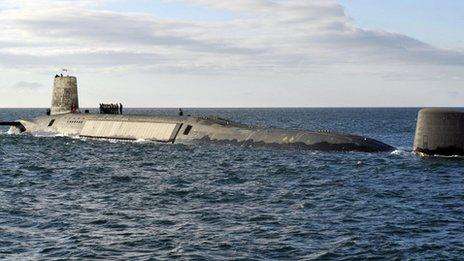
- Published27 September 2015
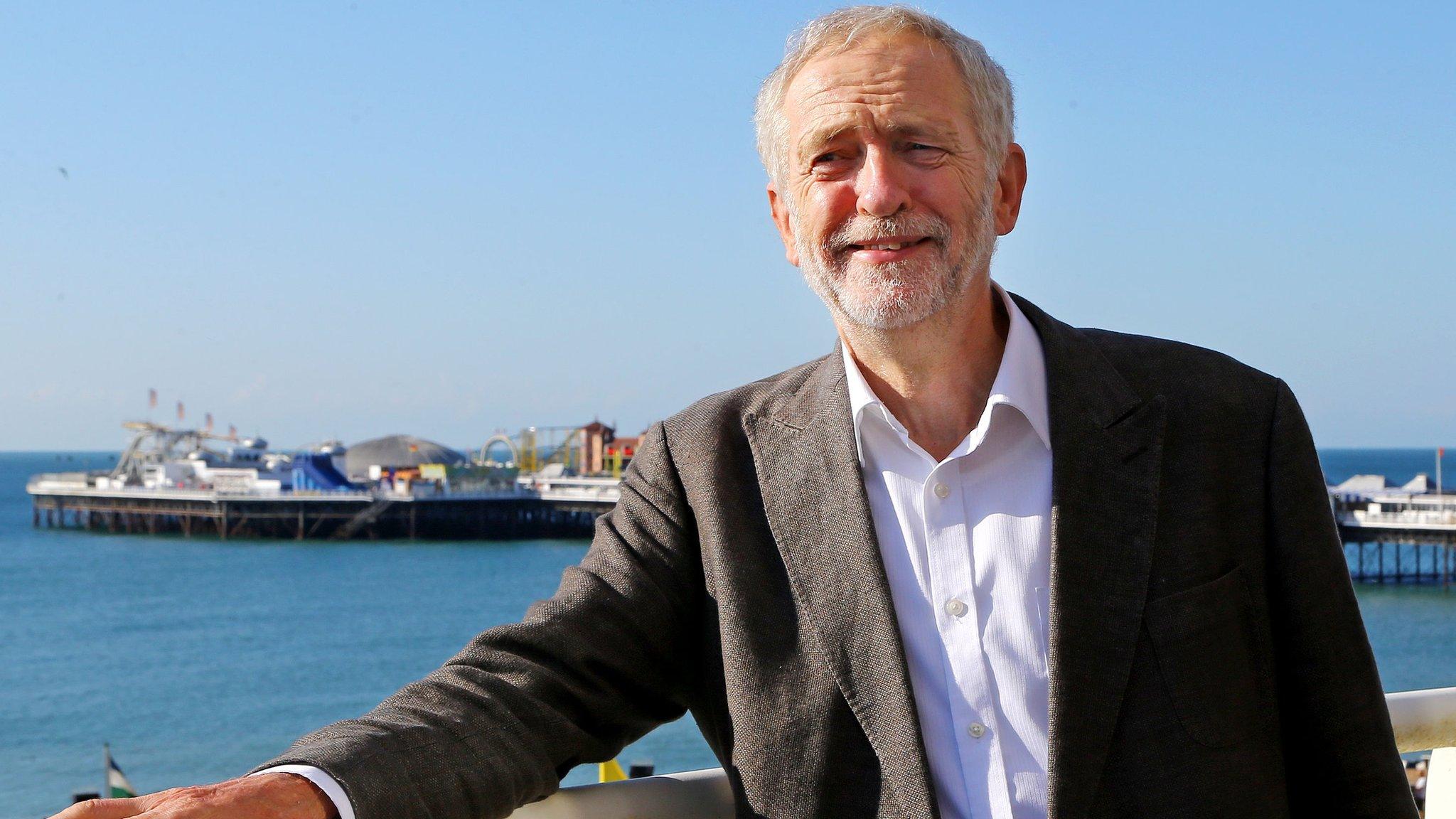
- Published28 September 2015
